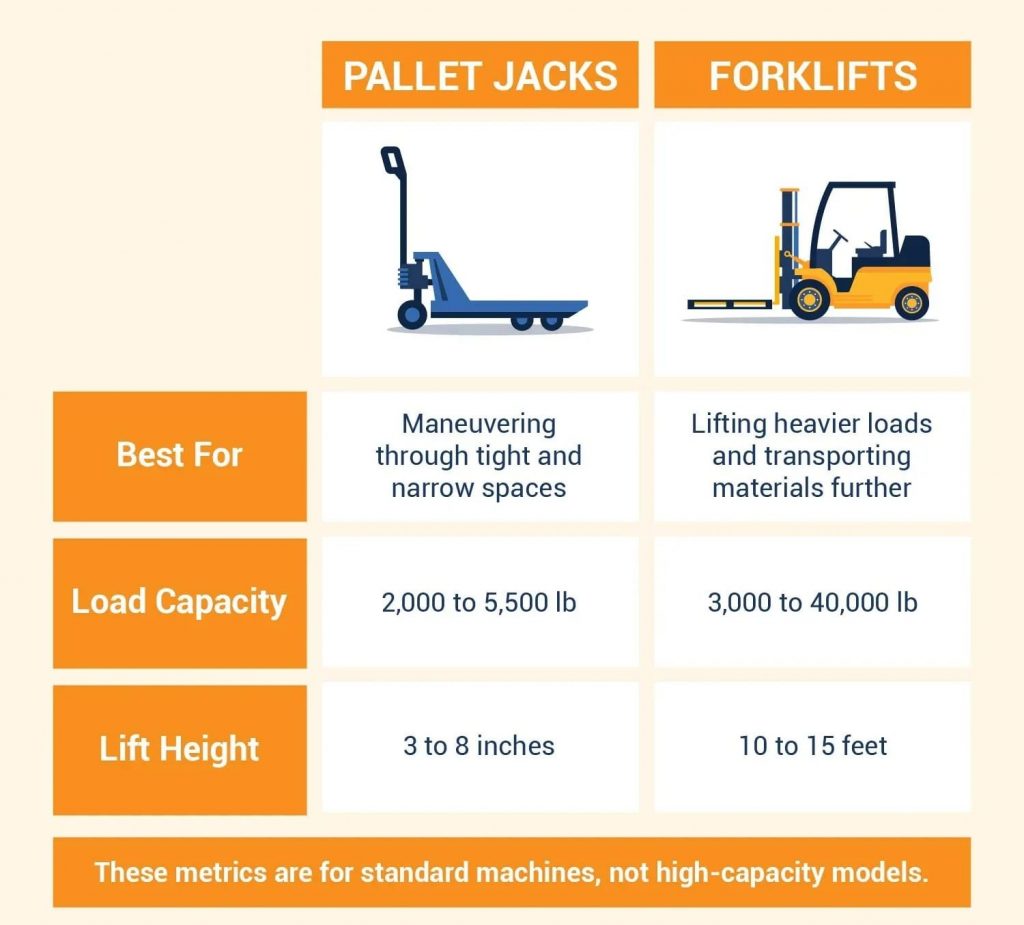When it comes to electric material handling equipment, choosing the right power source is crucial. Two of the most common options are forklift batteries and pallet truck batteries. Although they share similarities, they differ in size, power, and application. Understanding these differences helps you select the best battery for your warehouse operations, especially if you frequently handle plastic pallets or other heavy goods.
Forklift vs Pallet Truck
Both forklifts and pallet trucks are essential tools in warehouse operations, but they serve different purposes. A forklift is designed for lifting heavier loads and stacking materials at higher heights, making it ideal for industrial or large-scale logistics. A pallet truck—also called a pallet jack—is smaller and perfect for maneuvering through tight spaces while moving loads like plastic pallets over short distances. In short, forklifts provide power and reach, while pallet trucks offer convenience and flexibility.


1. What Is a Forklift Battery?
A forklift battery is a high-capacity power source designed for electric forklifts. These batteries provide the energy required for lifting heavy loads and operating for long hours. Forklift batteries are usually made from lead-acid or lithium-ion chemistry, depending on the performance needs and maintenance preferences.
Key Features of Forklift Batteries:
- Available in 24V, 36V, 48V, 72V, or 80V configurations.
- High energy capacity (300Ah–1000Ah+).
- Can weigh over 1000 kg, serving as a counterbalance for forklifts.
- Ideal for heavy-duty industrial and warehouse operations, including moving stacks of plastic pallets.
2. What Is a Pallet Truck Battery?
A pallet truck battery powers electric pallet jacks or pallet trucks that are used for short-distance material transport. These batteries are compact, lightweight, and often maintenance-free, making them perfect for retail warehouses and logistics centers where flexibility and speed matter most.
Key Features of Pallet Truck Batteries:
- Usually 12V or 24V systems.
- Smaller capacity (100Ah–300Ah).
- Lightweight design for easy handling and compact equipment.
- Commonly made from lithium-ion or gel battery technology.
3. Comparison: Forklift Batteries vs Pallet Truck Batteries
| Feature | Forklift Battery | Pallet Truck Battery |
|---|---|---|
| Application | Used for electric forklifts handling heavy loads and stacked plastic pallets. | Used for electric pallet trucks moving goods and pallets over short distances. |
| Voltage | 24V–80V | 12V–24V |
| Capacity | 300Ah–1000Ah+ | 100Ah–300Ah |
| Weight | Heavy, often over 1000 kg. | Light, usually below 200 kg. |
| Charging Time | 6–8 hours (lead-acid) | 2–4 hours (lithium-ion) |
| Maintenance | Requires regular watering for lead-acid types. | Mostly maintenance-free. |
4. Which Battery Should You Choose?
The choice between a forklift battery and a pallet truck battery depends on your operation type:
- Choose a forklift battery if your work involves heavy lifting, high stacking, and transporting multiple plastic pallets in one shift.
- Choose a pallet truck battery if you need light material handling over short distances inside warehouses or retail spaces.
5. Example Selection
For instance, a 3-ton electric forklift might use a 48V 600Ah lead-acid battery, while an electric pallet truck might use a 24V 150Ah lithium-ion battery for quick, efficient movement of goods and plastic pallets.
6. Conclusion
Both forklift batteries and pallet truck batteries play vital roles in modern logistics and warehousing. By understanding their key differences in voltage, capacity, and application, you can select the most efficient power solution for your business — whether you’re managing heavy forklift loads or moving lightweight plastic pallets around your facility.
Learn more about li socl2 battery, Drone Battery
